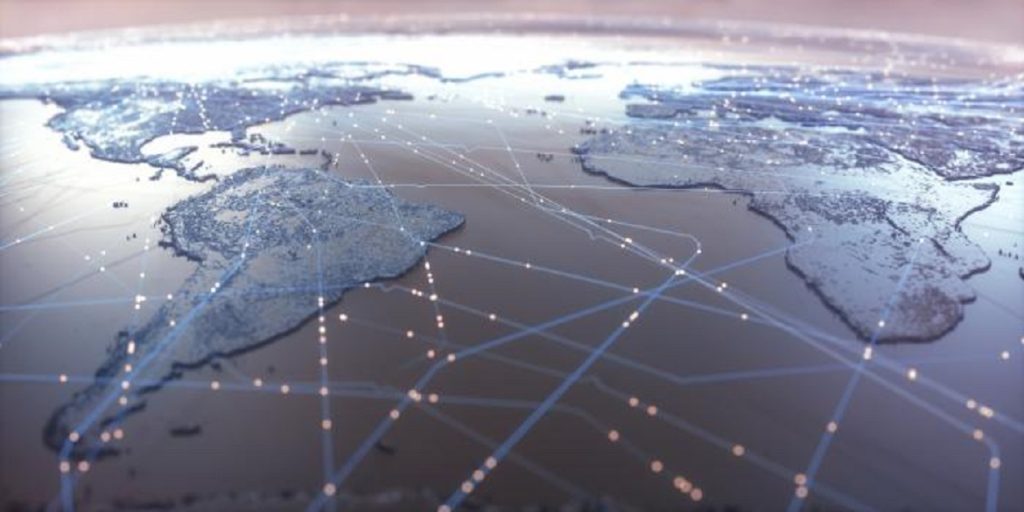By Rana Danish Nisar
The global geopolitical scenario has changed dramatically over the previous century. The era following World War II was characterized by the antagonism between two superpowers, the United States and the Soviet Union.

However, with the fall of the Soviet Union in the early 1990s, the world saw the emergence of a unipolar world command, with the United States as the sole giant. This unipolar world order did not last long, as other major powers such as China, Russia, and India began to appear as important players in the universal system. The various possessions and capabilities of these countries are changing the world geopolitical scenario in unexpected and imaginative ways.
The conversion from a world subjugated by rivalry for natural goods such as oil to one subjugated by progress and scientific discovery has been one of the most essential vicissitudes. This transformation has been fueled by the intensification of the digital economy and the growing admiration for artificial intelligence. Rivalry for natural reserves, like that for oil, was once an idiosyncratic story of the geopolitical scenario. Because oil was considered a dangerous reserve for economic expansion and military power, states that had connections to oil reserves were considered key competitors in the global scheme. The Arab oil embargo of the 1970s, which significantly disrupted the world economy and created a recession in the United States and Europe, made clear the importance of oil in changing the geopolitical landscape. Over the past two decades, however, there has been a growing recognition that technological innovation is critical to the exercise of power and influence on the world stage. This recognition is the result of the explosive growth of the digital economy, which has given nations new options for gaining an advantage over rival nations abroad. In recent decades, the “Oil to AI” path of competition among great powers has taken a significant turn.
A new period of competition among major powers has emerged as a result of the transition of global power dynamics from a dependence on traditional resources, such as oil, to a new era of technological innovation. For many years, the production and use of residual energy, especially oil, have been the main drivers of the world economy. As many countries rely deeply on this reserve for their economic expansion, the regulator of oil holdings has been a crucial element in the subtleties of world supremacy. Many states have been involved in battles over rheostat and oil possessions because the Middle East has long been seen as imperative for oil production.
But as the world has become more technologically innovative, the struggle has shifted from being habitually resource-driven to being innovation-driven. Major countries are deeply focused on the design and delivery of (AI) as they compete for supremacy in this emerging field. As artificial intelligence is widely observed as a transformative technology with the potential to change the universal economy and the circulation of power among countries, it is at the forefront of this change. Artificial intelligence has the potential to momentarily increase productivity, efficiency and affordability across a variability of economic sectors by mechanizing a wide variety of maneuvers and progressions.
Among the major powers that have recognized the connotation of AI in shaping the future of global supremacy dynamics are the United States, China, and Russia. With the goal of having an edge over each other, these countries have made significant investments in AI exploration and growth. Through its emphasis on AI development, the United States has maintained its place as a global vanguard in the technological revolution. The National Strategic Plan for Artificial Intelligence Research and Development, which proposes to replace collaboration between government, business and academia to spread AI technology, was established by the U.S. government and features considerable speculation in AI research. Major U.S. IT companies, such as Google, Amazon and Microsoft, have also invested heavily in the growth of AI, adding to the creativity of the government, which believes that AI is capable of changing many industries and opening up new possibilities for development and productivity.
China, on the other hand, has opted for a more established attitude toward AI progression, with the government having a precarious nature in encouraging novelty. The Chinese government’s “Made in China 2025” tactic aims for the state to become a global pioneer in high-tech productions such as AI, robotics, and aerospace. China has also allocated considerable funds for AI research and expansion with the formation of the National Next Generation Artificial Intelligence Development Plan, which aims to make China the world’s leading center for AI modernization by 2030. In order to excel in the world of AI, China’s leading IT companies, such as Ali-baba and Baidu, have also invested substantial resources in this area.
Despite being less forward-looking in AI expansion than the United States and China, Russia has recognized the role of this technology in influencing global power currents. The Russian government’s National Technology Initiative aims to encourage the evolution of high-tech enterprises such as AI, blockchain and quantum computing. The Russian government has also created associations with large digital companies such as Yandex and Mail.ru, with the aim of using their know-how and possessions to promote the study and expansion of AI in the country.
Other countries, including India and Japan, have invested large sums in AI research and development as they recognize the importance of AI for global power and stimulus. These nations, however, face considerable difficulty in competing with the superpowers because they lack the resources and capabilities to invest in AI. As the great powers linger to make large reserves in improving artificial intelligence, the world power dynamics are expected to shift melodramatically. Oil and other conformist possessions will become progressively less important, and nations that can establish themselves as leaders in AI will become the new economic superpowers.
This new era of competition presents significant risks and problems. As a result of the development and implementation of AI, privacy, security and ethical concerns have been raised. Governments and companies will need to work together to ensure that AI is created and used responsibly and ethically. There is also concern that AI will replace human jobs, which could have major social and economic consequences. To address these issues and ensure that the benefits of AI are distributed fairly and equitably, governments and businesses must act.
Author: Rana Danish Nisar – The author holds high academic credentials in the field of international relations. He has deep expertise in security, defense and military studies.
(The views expressed in this article belong only to the author and do not necessarily reflect the views of World Geostrategic Insights)







